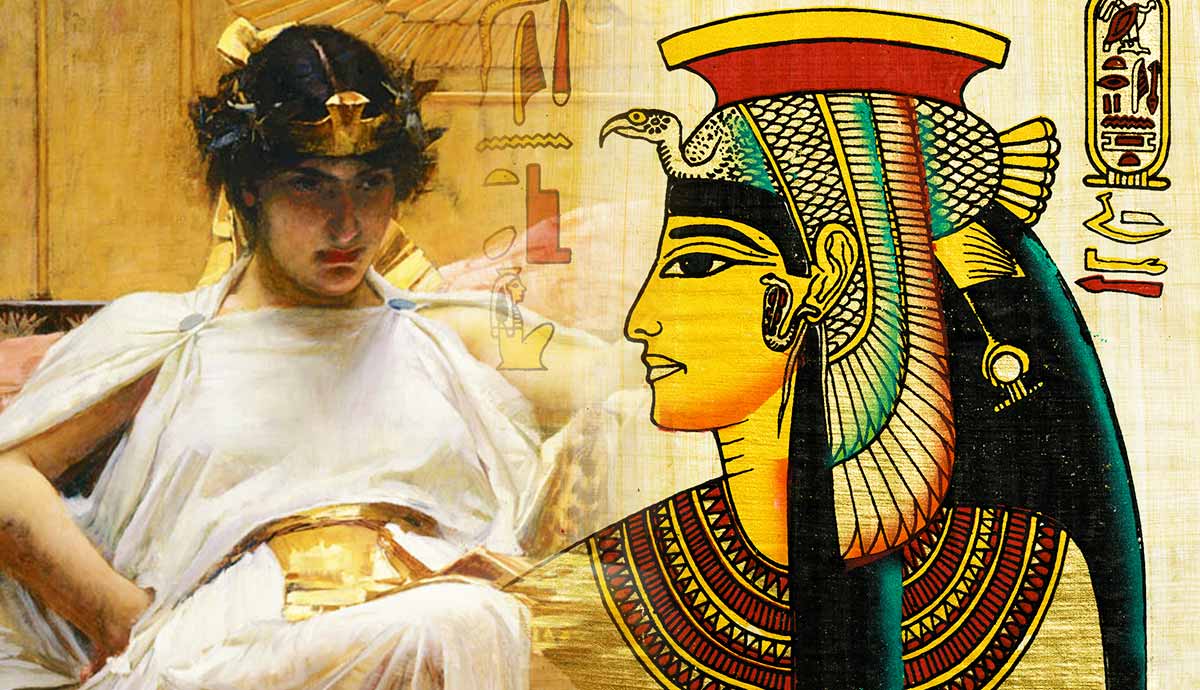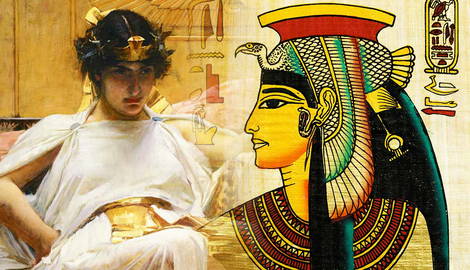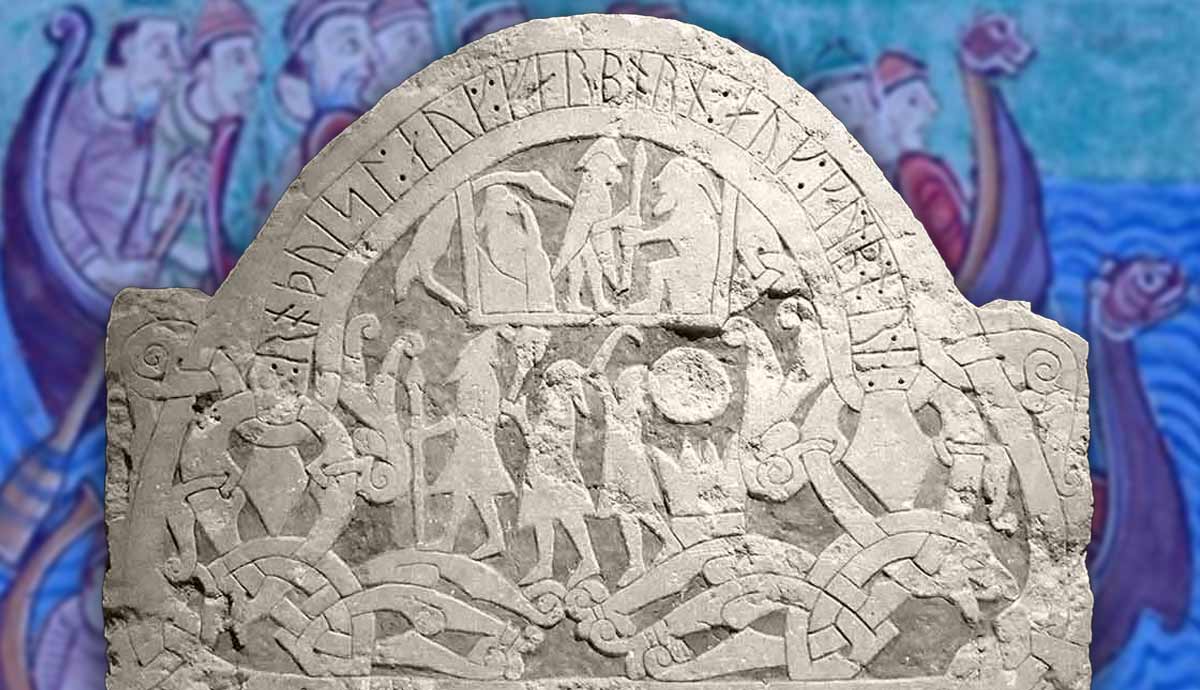
summary
- Cleopatra was queen of Egypt, but she was a Macedonian Greek, like Alexander the Great.
- Cleopatra was highly educated and the only Ptolemaic pharaoh who could speak ancient Egyptian.
- She had affairs with both Julius Caesar and Mark Antony, embroiling herself in Roman politics.
- It is uncertain how Cleopatra died, and she may have had no choice but to commit suicide.
Cleopatra VII, better known as just Cleopatra, was one of the most prominent queens in antiquity. Known for her intelligence, powerful army, gold-filled coffers, and notorious affairs with political leaders, she was a prominent player in both the death of the Roman Republic and the fall of the Egyptian Pharaohs. While she met a tragic end, Cleopatra successfully maneuvered a predominantly male domain with striking aptitude. Below are some lesser-known facts about her life and political career.
What Was Cleopatra’s Connection to Alexander the Great?

Cleopatra was queen of Egypt, but she was not an Egyptian. Born in 70-69 BCE, she was the daughter of Ptolemy XII and Cleopatra V Tryphaena. Believed to be siblings, Cleopatra’s parents were the descendants of Ptolemy I Soter, a general of Alexander the Great and one of the Diadochi successors who divided Alexander’s empire. He was the eventual founder of the Ptolemaic line of Egyptian pharaohs. Cleopatra’s heritage can thus be traced to Macedonia, and she probably considered herself to be Greek. Her name, Cleopatra, famously translates to “honor of the father” in ancient Greek.
Cleopatra Married Two of Her Younger Brothers

At age 18, Cleopatra was married to her 10-year-old brother and co-ruler, Ptolemy XIII, who succeeded his father as Pharaoh. Shortly after coming to power, Ptolemy made an attempt on his sister’s life, causing Cleopatra to flee to Syria. She subsequently gathered an army and returned to Alexandria, fighting a civil war with her brother for rulership. During this time, Julius Caesar traveled to Alexandria under the invitation of Ptolemy XIII. However, Cleopatra won Caesar’s support, and their joint Roman-Egyptian army overthrew Ptolemy XIII.
After Ptolemy XIII’s defeat and subsequent death, Cleopatra married her younger brother, Ptolemy XIV. She was 22 and he was 12. He was Pharoah only in name to honor Egyptian tradition. He died soon after Julius Caesar in 44 BCE, probably poisoned by Cleopatra so that she could replace him as co-emperor with her son.
She Was Intelligent, Well-Educated, and Very Ambitious

Cleopatra’s intelligence was praised by numerous ancient historians, most notably Plutarch, and she was reportedly well-versed in mathematics, philosophy, and debate. She was also gifted with languages. Her native tongue was Koine Greek, but she became fluent in at least nine languages during her rule, including Arabic and Hebrew. She was the only Pharaoh of the Ptolemaic dynasty to learn the Egyptian language, which made her an effective leader because she could communicate with her armies without a translator.
Cleopatra Introduced the Leap Year

During her affair with Julius Caesar, Cleopatra brought him to the ancient University of Alexandria. Here, she introduced him to an astronomer named Sosigenes of Alexandria, who proposed a calendar that followed solar cycles rather than the previous lunar calendar. This calendar featured an additional day every four years for consistency, now called a leap year. Caesar adopted the idea and implemented it in Rome in 45 BCE, and one year later in Egypt. The names of Caesar and subsequent Roman emperors became names of the months, which we still use today, such as “July” after Julius and “August” after Augustus.
Divine Mother: Cleopatra Was Linked to the Goddess Isis

The Egyptian Pharaoh was closely associated with the gods and was considered the incarnation of Horus on Earth. Egyptian queens were often associated with Isis, as the wife and mother of gods. While previous female Egyptian pharaohs, such as Hatshepsut, maintained a kingly association with Horus, Cleopatra embraced an association with Isis. Cleopatra encouraged this association by dressing herself as Isis for ceremonial events and often looked to religious prophecy to justify her actions. Her ally Mark Antony would later follow her lead and associate himself with the Greek god Dionysus, while even her adversary Octavian was known to have dressed up as the god Apollo.
What Did Cleopatra Look Like?

While Cleopatra VII has been remembered for her striking beauty and seductive allure, there has been debate about what she actually looked like. There is significant evidence of her face on ancient coinage, but only two busts depicting her survive and only one of them is complete. Her bust matches her profile as seen on coins, but there is some suggestion that her image was portrayed as hypermasculine to convey her strength as a ruler as if to compare her to her male contemporaries.
She Had Affairs with Julius Caesar and Mark Antony

After Cleopatra won Caesar’s support in 48 BCE, it is said the two embarked on a turbulent and politically fueled love affair. Their liaison proved mutually beneficial, as they each proved powerful political allies to the other. Cleopatra is even believed to have had a child with Caesar, who was named Ptolemy XV Caesar, often called Caesarion.

After the assassination of Caesar in 44 BCE, Rome was sent into turmoil, with several parties bidding for leadership over the state. One of these parties was , and in 41 BCE, he met with Cleopatra to ask for her support. The two quickly became lovers and political allies. They were known for their extravagant lifestyle, indulging in decadent gatherings and fine goods. They eventually married and produced three children together, but their political and romantic partnership would meet a tragic end.
Her Affair Inspired Shakespeare’s Famous Play “Antony and Cleopatra”

Shakespeare’s play Antony and Cleopatra was first performed at the Globe Theatre in London in 1607. The play is based on the relationship between Mark Antony and Cleopatra, beginning with the meeting of the two characters and ending with Cleopatra’s suicide by snake bite. The play popularized and romanticized the relationship between the two, resulting in other modern interpretations of the tragic love story, including the iconic film Cleopatra (1963) featuring Elizabeth Taylor. Shakespeare’s Cleopatra has also been described as one of the first complex, multifaceted female characters in modern Western literature.
Escaping Actium: Cleopatra Was Intercepted Fleeing to India

After Cleopatra and Mark Antony’s infamous defeat at the Battle of Actium, Cleopatra fled the scene using a sea route known only by members of the Ptolemaic dynasty. This route had been discovered after some Egyptians rescued an Indian man from a damaged ship in the Red Sea. The Indian man agreed to share his secret route with King Ptolemy II in exchange for safe passage.
However, the route was not well maintained and had become overrun with bandits, so they switched courses onto what is known today as the Suez Canal. Unfortunately, the Nabatean people who occupied the area had made alliances with Augustus (Octavian) and intercepted the escape, forcing Cleopatra to return to Egypt and strengthen her defenses.
How Did Cleopatra Die?

While Cleopatra is widely believed to have died by suicide, the details vary between historians. Some accounts state that Cleopatra died by allowing an asp, or Egyptian Cobra, to bite and infect her with its venom. However, others claim that she poisoned herself with a toxic substance on a hairpin or other sharp object. Additionally, there has been modern skepticism about whether or not Cleopatra was murdered or if Octavian let her die by suicide as her method of choice.
Cleopatra’s Tomb Has Yet to Be Found

While ancient accounts indicate that Mark Antony and Cleopatra were likely buried together, the exact location of their burial site remains unknown. There has been significant speculation and investigation on the subject, beginning with Alexandria and extending into surrounding areas. Although several tombs have been uncovered, with leads to important burial sites, her tomb has yet to be discovered.
Cleopatra Was Probably the Richest Woman in the World

Cleopatra made an attractive ally for her Roman friends because she was incredibly wealthy. Modern calculations suggest that she had a net worth of US$95.8 billion in today’s money, making her one of the richest women of all time. As well as controlling Egypt’s grain supply, which would become the breadbasket of Rome, she had access to coffers of gold filled by international trade, not to mention Egypt’s significant manpower.
Cleopatra financed Julius Caesar’s projects to maintain and expand his power in Rome. She also financed much of Mark Antony’s war in Parthia, and then his struggle against Octavian. When Octavian defeated Cleopatra, he took Egypt as a personal possession, monopolizing its vast wealth.
That is not to say that Cleopatra did not struggle, as droughts and volcanic eruptions caused famines during her reign. She responded by having the royal granaries distribute food to the population and revolutionizing the monetary system. She was the first pharaoh to have the value stamped on coins and made that stamp a guarantee of its value rather than the weight of the coin, which was greatly debased. Also, unlike her predecessors, she minted no gold coins during her reign.










